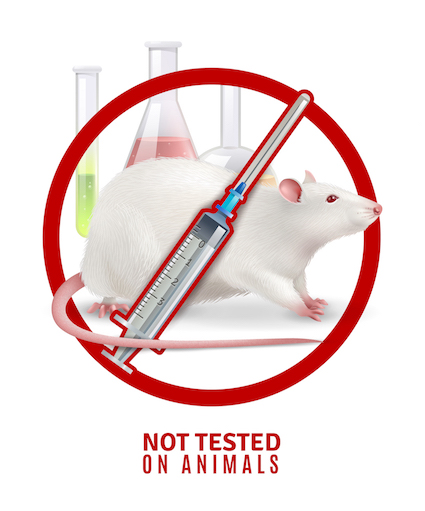Taking tech steps to go beyond animal testing!
October 04, 2023 | Wednesday | Features | By Dr Manbeena Chawla
The global non-animal alternatives testing market is expected to grow to $3.2 billion in 2027
Recent policy shifts across many countries are encouraging the transition towards use of nonanimal models. It also stems from the observation that 95 per cent of drugs that succeed in animal tests ultimately fail in human clinical trials. As a result, studies predict that over the next 15 years, there will be a significant rise in the global use of non-animal models across all stages of the product development pipeline.
The pharmaceutical industry, cosmetics and household products, diagnostics, chemicals industry, and food and beverage industry currently dominate the non-animal alternatives testing market. However, the pharmaceutical industry was the largest segment of the non-animal alternatives testing market, accounting for 40.6 per cent of the total in 2022. On the whole, the global non-animal alternatives testing market reached a value of nearly $1.86 billion in 2022, having grown at a compound annual growth rate (CAGR) of 9.5% since 2017, and is expected to grow to $3.2 billion in 2027 and reach $5.5 billion in 2032.
The most significant growth of this market is likely to come from complex in vitro models such as 3D organoids and organ-on-chip technologies. In fact, in silico models are also anticipated to be more widely applied throughout the development process. For instance, a liver-chip model from Harvard University recently demonstrated a more accurate prediction of human toxicity than animal model equivalents, sometimes flagging compounds that animal models missed.
Hyderabad-based Hetero Biopharma is bringing about another development that has embarked on a working relationship with Transcell and US-based Quantiphi to explore the integration of Digital Animal Replacement Technology (DART) into its operational Processes. DART harnesses human Microphysiological Systems and employs artificial intelligence (AI) and machine learning-powered digital prediction models. These models are integrated into modular assays that predict the safety and efficacy concerns of pharmaceuticals and biopharmaceuticals intended for human use. DART is one of the fascinating areas that the Hyderabad-based startup Transcell is working on to replace the need for live animal testing in parts of the drug and vaccine development and manufacturing process. They have developed a platform that combines human stem-cell-based assays with an AI-powered digital workstation to predict safety and efficacy concerns.
Purely computational models can also provide a cost-effective solution for drug development, with computer-aided drug design being a modern technique used to identify potential leads. New Delhi-based startup Molecule AI is developing AI models to predict ADMET properties in humans, thus reducing the need for extrapolating the results of animal studies to humans. This can significantly reduce the number of compounds to be tested on animals. The clinical relevance and potential impact of AI toxicity models can be illustrated by the example of ELND006. This molecule is a ˠ-secretase inhibitor that underwent clinical trials to treat Alzheimer’s disease. Molecule AI’s toxicity models flagged this molecule for hepatotoxicity, the same reason for which the molecule failed the clinical trials.
Although multiple developments are taking place across the industry, incorporating nonanimal models into routine use for regulatory approvals will be incremental. Novel nonanimal models must be validated by independent centres, qualified by large regulators, and accepted for specific contexts of use by international harmonisation organisations. Scientists, researchers, and regulators need to collaborate and be educated about the benefits and proper use of alternative methods. Time will assess whether non-animal models demonstrate equivalent or better outputs than animal models and are likely to replace animal models in the next 15 years.
Dr Manbeena Chawla
(manbeena.chawla@mmactiv.com)









